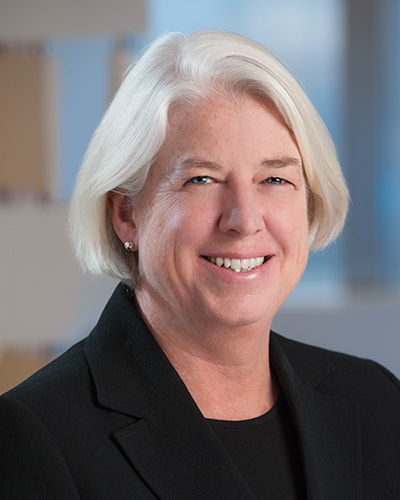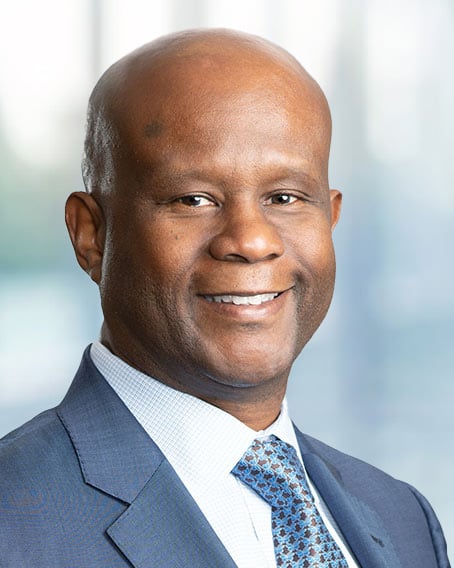What impact will the incoming Trump administration have on health care enforcement and False Claims Act cases? In this podcast, Colleen Conry and Alex Rene, partners in Ropes & Gray’s government enforcement practice in Washington, D.C., offer their perspectives on what might lie ahead under a new administration. To learn more about potential regulatory and enforcement developments emanating from Washington, visit Capital Insights.
Transcript:
Alex: I am Alex Rene, a partner at Ropes & Gray’s government enforcement practice group in Washington, DC. I am here with Colleen Conry also a partner in DC and former co-chair of our government enforcement practice. This is part of a series of Capital Insights podcasts we are hosting to examine the issues and potential regulatory and enforcement changes emanating from Washington, DC as we transition to a new political administration. We are talking today about the potential impact of the incoming Trump Administration on healthcare enforcement and False Claims Act cases.
Alex: Colleen, you have handled a number of these cases, False Claims Act specifically, and served in both the civil and criminal divisions at main justice. What do you expect to see from a Donald Trump Administration in the healthcare space?
Colleen: So Alex, I have talked to many of our colleagues about exactly that question and the bottom line is it is just tricky trying to read tea leaves, but we do expect healthcare and False Claims Act enforcement to remain relatively active. Historically, administration changes don’t dramatically change False Claims Act enforcement and that is for a few reasons. So for one thing it is just good politics to fight Medicare fraud. And that applies across both sides of the aisle. Also, many of these cases are driven by attorneys in the career ranks. Not presidential appointees. And, most of those career attorneys will remain in place from administration to administration. And maybe most importantly, most False Claims Act cases are usually found in the first instance by private whistleblowers. And there is no sign that those whistleblowers will be going away in the near term.
Alex: But do you see any changes coming from healthcare enforcement?
Colleen: You know I do see changes coming but it is really mostly at the margins. I fully expect the change in leadership at the DOJ will mean a shifting of priorities and perhaps funding. My best guess is that we will see DOJ take a slightly more business friendly view in some of these gray areas. Like off-label promotion. That has been a hot topic in recent years.
Alex: Can we talk a bit more about Jeff Sessions, the president-elect’s pick for Attorney General and how he might approach these issues.
Colleen: Sure. So you know Alex, Sessions was the US Attorney in Alabama and then Alabama State Attorney General. And he has always presented himself as a tough law and order prosecutor. And he has made some comments over the years to suggest that he will bring the same aggressive philosophy to healthcare enforcement. For example, Sessions has said that combating healthcare fraud is an important issue and emphasizes that it takes a sustained effort and support from the top of the DOJ to fight it effectively. So those are not words of someone who will be looking to dramatically roll back healthcare enforcement. That said False Claims Act is not likely to be a high priority for Sessions relative to issues like immigration or national security. Those issues we think are front of mind for him. So it is possible we will see a shift of some resources at DOJ away from FCA prosecutions to focus on these other priorities.
Alex: That makes a lot of sense. On the other hand, if Sessions isn’t very focused on healthcare fraud then maybe he won’t put much effort into changing the department’s course on that issue.
Colleen: And as you and I know from our experience, career lawyers at DOJ make an effort to stay consistent across administrations. Many attorneys spend years at the department and outlast the attorney generals and presidents. Key decision making roles will continue to be held by these career people. For example, Joyce Branda, she currently heads the commercial litigation branch at DOJ, which includes the civil fraud section that is ultimately responsible for FCA cases. Joyce has been working on False Claims Act cases for the government for 30 years. Now, obviously, there is going to come a time when she steps out of that role but my best guess is there are going to be others like her in that key role. Also, many healthcare fraud cases come out of US Attorney’s offices. And they will likely keep doing what they are doing in healthcare enforcement. Let me use the Boston US Attorney’s office for example. It is one of the leading offices on healthcare enforcement. The Trump Administration, they are going to get to pick the new US Attorney to sit in Massachusetts. But we are reading the press and many of the names, and I won’t go into them, but many of the names being mentioned in the press are former AUSA’s who were involved in aggressively prosecuting white collar crime, including healthcare matters. So we don’t expect a lot to change at least in the key offices.
Alex: So what I hear you saying is that conservative leadership at the top of DOJ doesn’t mean less healthcare enforcement?
Colleen: That’s exactly right Alex. And we just have to look at history to prove that point. Healthcare fraud recovery topped a billion dollars for the first time in history under Attorney General John Ashcroft. And DOJ kept up that level of enforcement throughout the Bush Administration.
Alex: Let’s talk a little bit more about resources and funding. Starting in January, Republicans are going to control the White House and both houses of Congress. If small-government conservatives succeed in instituting some budget cuts, how do you think healthcare fraud and FCA enforcement will change?
Colleen: So the funding issue is a really interesting one. And this speaks to why False Claims Act activity stays so consistent across administrations. The FCA at its core is a moneymaker for the federal government. In 2015, the government collected more than $3.5 billion from False Claims Act cases. That is the fourth year in a row they topped $3.5 billion. And even of the $3.5 billion collected in 2015, $1.9 billion came from healthcare fraud cases. And if you look at the False Claims Act cases, they often get their starts from qui tam relators. These are private whistleblowers. And there is no government involvement in many of those cases. So, to be specific, of the 448 healthcare FCA actions in 2015, only 25 were initiated by the government rather than a whistleblower. Now the government gets to choose whether it wants to intervene in these cases, but the action can keep going even if DOJ decides not to get involved. FCA cases tend to be much more successful when the government does intervene. Perhaps it is because the Feds are good at picking the winners or maybe because the resources they bring to bear make a difference. So, to the extent there are fewer resources at DOJ devoted to healthcare enforcement, that may have an effect on FCA outcomes but you will still have private relators bringing suit which are the real engine driving FCA matters.
Alex: Is there any thought that the Trump and Sessions Administrations may try to put limits on FCA whistleblowers?
Colleen: Listen, that is certainly a possibility. And the President-Elect has made noises in that direction on Dodd-Frank, but we haven’t heard any of that kind of talk in the False Claims Act space. And Sessions, interestingly, said himself that the whistleblowers can be a critical part of discovering frauds and that he thinks they are a legitimate part of our enforcement regime.
Alex: Over time though we may see the Trump Administration take a more conservative stances on enforcement generally. Sessions seems to prefer focusing on traditional areas of criminal enforcement such as prescription drug reviews. Sessions has also expressed concerns about penalizing business behavior that does not involve affirmative bad intent. During a 2009 hearing on criminal prosecutions of healthcare fraud, Sessions seemed concerned that doctors and hospitals were worried about being prosecuted for honest billing mistakes.
Colleen: Yeah, no he does. He expressed some concern about criminal enforcement for issues like billing mistakes but remember he still said billing mistakes should be pursued civilly or administratively. So you know to just sort of back up, no one knows for sure. You know I think my best guess is that in the gray areas of complex regulations, Sessions may be less eager than Attorney General Holder or Lynch to push the envelope. For example, where companies provide truthful, non-misleading information about off-label uses for their products, DOJ and Sessions may be less likely to continue pursuing the aggressive stances that have been rejected by the Courts in Caronia and Amarin. So there are going to be some changes at DOJ for sure but for now I think we can expect healthcare fraud enforcement activity to stay relatively close to historical levels.
Alex: Colleen, thank you for your insights and thank you all for listening. Please visit our newly launched Capital Insights page at www.ropesgray.com for additional news and analysis about noteworthy enforcement and regulatory issues.
Stay Up To Date with Ropes & Gray
Ropes & Gray attorneys provide timely analysis on legal developments, court decisions and changes in legislation and regulations.
Stay in the loop with all things Ropes & Gray, and find out more about our people, culture, initiatives and everything that’s happening.
We regularly notify our clients and contacts of significant legal developments, news, webinars and teleconferences that affect their industries.


